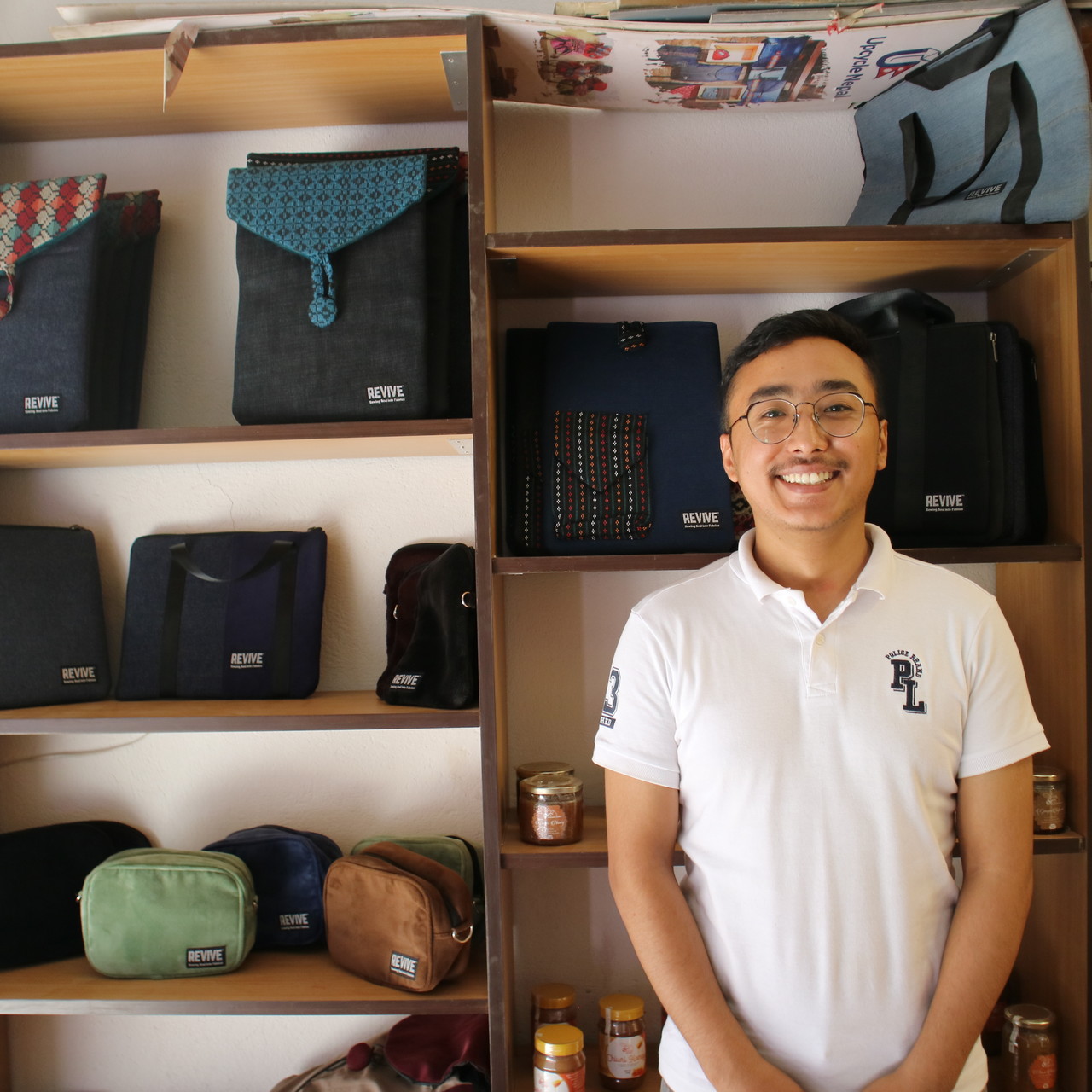
Rajan Chakradhar_Upcycle Nepal
To integrate technology, innovation, and experience into green production process for the eco-frinedly coffee products and climate issue solution.
"'Upcycle Nepal’ aims to promote environmental sustainability through upcycling of waste materials."
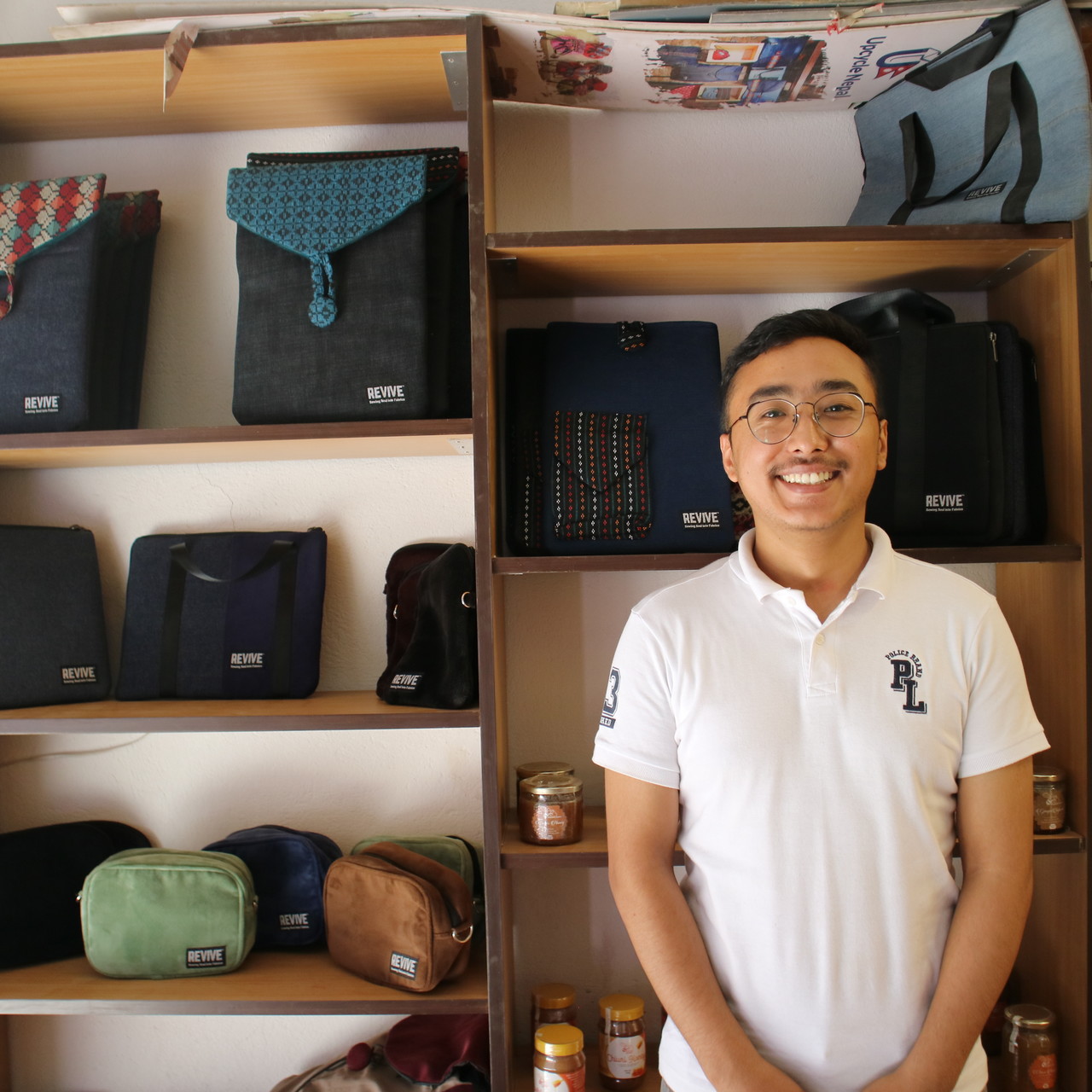
Do you remember the story of Amorpol, the 1st Asia Beautiful Fellow, who is creating a sustainable circular economy in the fashion industry of Thailand? He realizes environmental value through selling high-quality surplus fabric that could have been thrown out in the factory to designers and small businesses at reasonable prices and creating customized products. Rajan, the first fellow of the 2nd Asia Beautiful Fellow, is also pursuing environmental value through upcycling products with second-hand clothes for reducing fabric wastes disposed to landfill in Nepal where waste management is inadequate. Let me tell you the story of Rajan, the 2nd Asia Beautiful Fellow, who is expanding public awareness of recycling and upcycling in Nepal, by proposing a new way of resource circulation!
What is Upcycle Nepal?
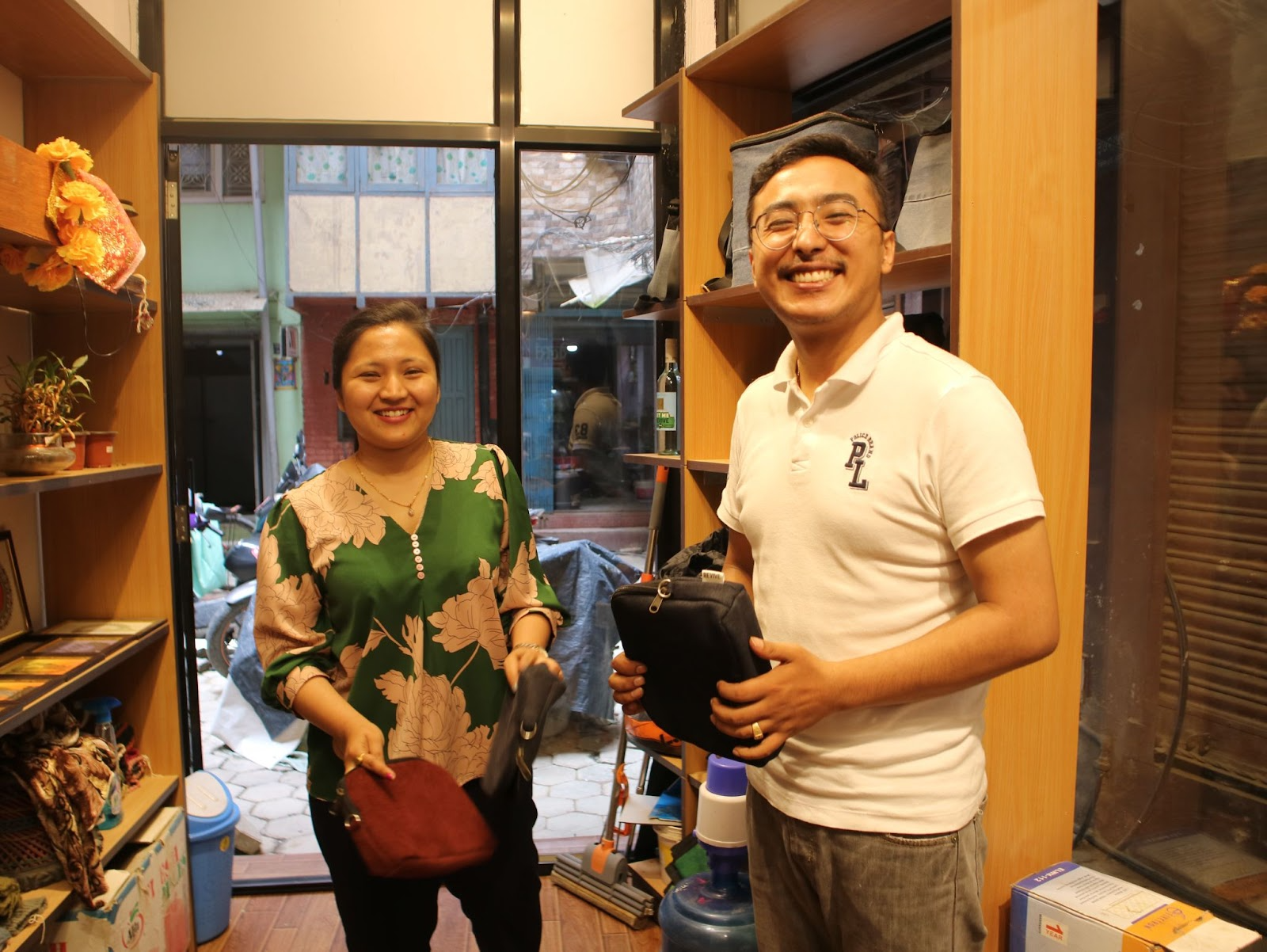
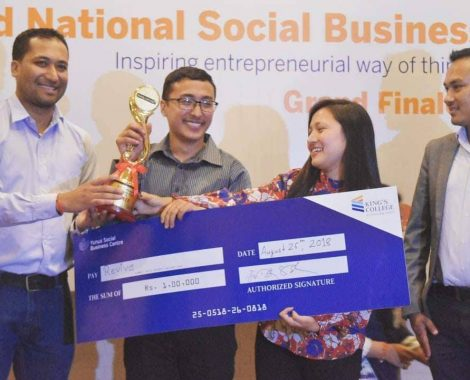
ⓒ The Beautiful Store Foundation, Upcycle Nepal website
Upcycle Nepal, founded by Rajan, is a Nepalese social enterprise that collects second-hand clothes that would have been disposed of in landfills and upcycles them into various fashion items after sanitization, segregation, and design under the social mission called ‘To ensure no fabric ends up in the landfills’.
Rajan is influenced by his father who usually does various volunteer activites, so he wanted to give a positive impact on the local community since he was young. Then, he realized dumping and buring is the only way to manage solid waste in Nepal, which leads him to establish ‘Upcycle Nepal’ to solve this problem with Pushpa who studied together in university.
Rajan collected about 200 tons of clothing last year and upcycled more than 15,000 clothes until today, creating an environmental value that reduces water use of about 11,400,000 liters. He is aiming to collect 300 tons of clothing this year to further expand the environmental value in the community.
Why does Rajan try to solve the solid waste (fabric waste) problem?
Upcycle Nepal wants to tackle these issues
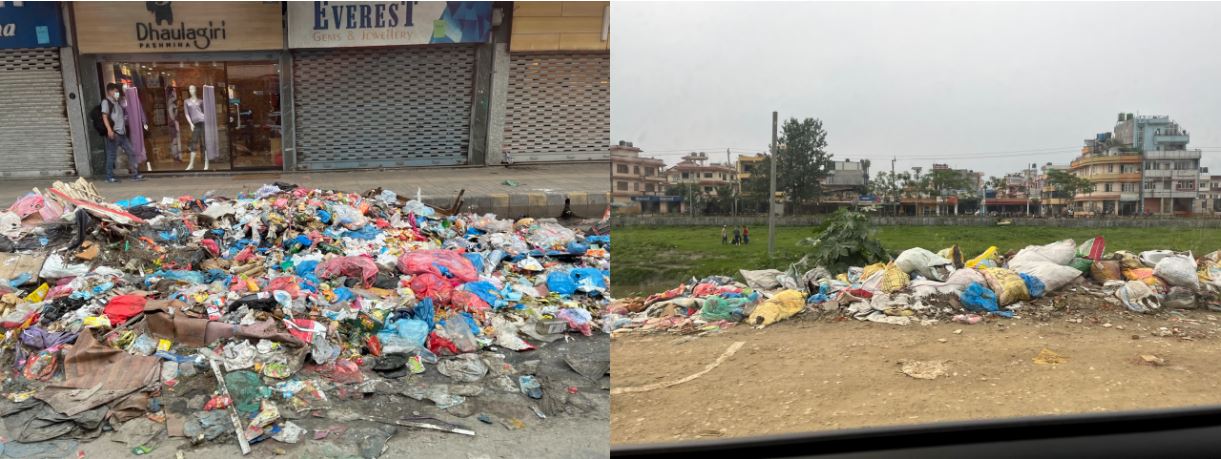
ⓒ The Beautiful Store Foundation
Nepal is one of the least developed countries in the world and is under the fastest urbanization among South Asian countries, which results in a surge of waste generation. (Korea Environmental Industry & Technology Institute, 2018) About 4,900 tons of solid waste are generated every day (World Bank, 2021), and half of them are generated in Kathmandu, Nepal's capital(Nepal Environmental Statistics, 2019) However, municipal waste management is not systematic, with citizens just incinerating or dumping them into surrounding spaces. (World Bank, 2013)
This unsanitary waste management risks public health and causes environmental problems. Temporary dumping of waste on roadsides or other low-lying land clogs the drainage system and just leaving solid waste which contains lots of organic materials unattended without management generates large amounts of greenhouse gases that cause climate change. Therefore, proper waste management in Nepal is urgently needed.(Central Bureau of Statistics, 2019)
It is said that the solid waste thrown into the landfill contains about 1,000 kilograms of fabric waste every day. According to the UN Alliance for Sustainable Fashion, the fashion industry accounts for about 10% of global greenhouse gas emissions as well as 20% of global wastewater, which means environmental pollution from fabric wastes is also serious.
The Nepalese government is also making efforts to manage solid wastes, but they are suffering from a lack of technology and professional manpower. The main factor that makes the government hard to deal with this problem is the low awareness of the public about sustainable waste management. So, Rajan and Upcycle Nepal are playing a very important role in terms of informing citizens of new ways of resource circulation through upcycling products.
What does Upcycle Nepal do?
✓ Collection and Segregation of clothing
Rajan offers a service to collect clothes that are unwanted at home. Household and company can easily donate clothes that are not needed anymore to Upcycle Nepal by filling out form through social media such as website, Instagram, and Facebook.
The collected clothing is washed and segregated according to the condition which determines a new place to be used. Clothing in good condition is reborn as a fashion item through the upcycling process, and clothing that is difficult to use as an upcycling product is donated for the vulnerable or downcycled into recycled cottons that go into seating pads, mattresses or sofa cushions.

ⓒ The Beautiful Store Foundation
✓ Design and sell upcycling products
The upcycling products of Upcycle Nepal are handmade by local artisans. Rajan makes more than 15 kinds of products, ranging from electronic device pouches such as laptop covers and iPad covers to fashion items such as shoulder bags and passport cases. Most products are made of jeans and given point with Dhaka fabric, a traditional Nepalese costume.
Rajan also researches popular designs by referring to various brands to maintain and improve the quality of the products. A distinguishing factor of Upcycle Nepal is to communicate with customers to receive feedback on products and reflect their opinions on its products.
These products are being sold in online and offline stores. In particular, the offline store supports not only the products of Upcycle Nepal but also various products such as food, accessories, and soap made by the Nepalese community to support the local community.
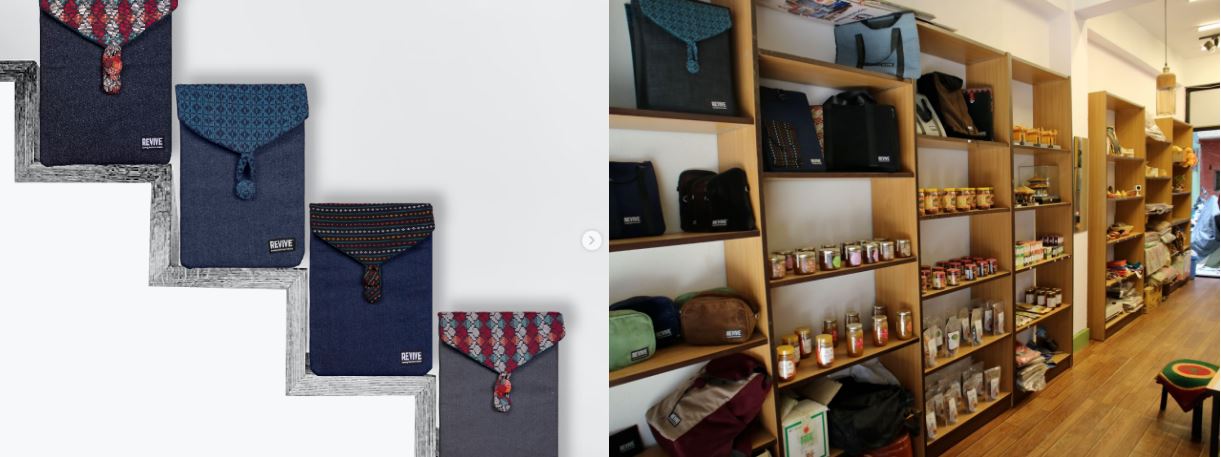
ⓒ Upcycle Nepal Instagram, The Beautiful Store Foundation
✓ Activities to improve awareness
Rajan is also doing activities to improve public awareness of the environmental problem. Nepal has low awareness of environmental issues to the extent that the public ha not heard of the word, ‘Upcycle’, although climate change is recently getting serious all over the world.
Rajan introduces the concept of upcycling to Nepal for the first time and strives to improve awareness through teaching local residents how to recycle products, or providing an opportunity to make an upcycling product by oneself.
In the future, he is planning to prepare workshops for citizens that deal with basic content about recycling and waste management. Also, he will educate students from nearby universities with practical content.
Strengthening institutional aspects is necessary for waste management in Nepal, but expanding public awareness and participation in waste management is more important. That is why the activities of Rajan and Upcycle Nepal to promote the culture of upcycling and recycling are very valuable.
Please listen to the stories of people working with Rajan and Upcycle Nepal
to make green changes in Nepal.
People working with Upcycle Nepal
✓ Pushpa Sthapit, Co-founder
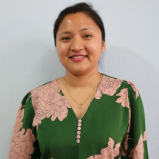
I studied MBA with Rajan. After learning about social entrepreneurship together, I wanted to do something to exercise entrepreneurship, but it was hard to meet someone I could relate to. Luckily, I met Rajan who wanted to make positive changes for the community, and we started Upcycle Nepal together.
As a leader, Rajan is calm and rational so that he can overcome any difficulties and crises that arise while running the company. In addition, he is a 'multi-tasker' who can handle various tasks at once, which is helpful to lead the company together. Running Upcycle Nepal with Rajan, I feel most rewarding when people recognize and express their gratitude for our efforts for the environment. From now on, I want to make ‘upcycle’ as a new fashion trend by letting more people know the concept of upcycling.
✓ Pratistha Sthapit, Employee
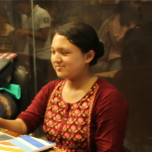
I am in charge of the offline store and intern management of Upcycle Nepal. Also, I promote Upcycle Nepal by making promotional materials when there is an external event. I feel most proud when I receive positive comments about our business from various stakeholders. I've been working with Rajan since Upcycle Nepal started and we've been working together for 4 years already. He seems to be a leader who always has plans for the future and believes that he will be able to expand environmental impact. I also want to contribute what I can do to Upcycle Nepal.
✓ Suresh Shrestha, Donator
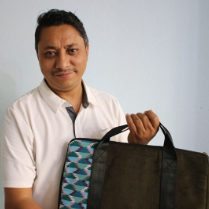
I happened to see Rajan and Pushpa's interview on TV and learned the concept of ‘Upcycling' for the first time in my life. So, I started donating to Upcycle Nepal because they are using second-hand clothes for the environment of the community, encouraging people to manage fabric waste in a proper way.
Actually, I run a clothing store that sells imported products from overseas brands, and I mainly donate stock products that are not sold. I am also encouraging people to donate to Upcycle Nepal, showing a YouTube video of Upcycle Nepal.
✓ Prateek Neupane, Customer

I was a professor of Rajan and Pushpa in university. We thought about how to commercialize upcycling as a business together. After the start of Upcycle Nepal, I have continued to give feedback on its products and buy products such as laptop covers. You can buy cheaper products than Upcycle Nepal, but most of them are of low quality or imported from abroad. However, the products of Upcycle Nepal are made from Nepal itself and contain the story of environmental values. Furthermore, the texture of the fabric is good and the zipper is strong. I often give it to people around me as a gift.
How was the story of Rajan, the first Fellow of the 2nd Asia Beautiful Fellow?
Rajan will do his best to make more clothes gain a new life through Upcycle Nepal and make people more interested in the environment. The Beautiful Store Foundation is walking with Rajan and other Asia social entrepreneurs who are trying to solve environmental problems. Please look forward to seeing how great changes will be made during the two years with The Beautiful Store Foundation 😊! We support Rajan and Upcycle Nepal, which create a sustainable fashion industry through upcycling fabric waste!
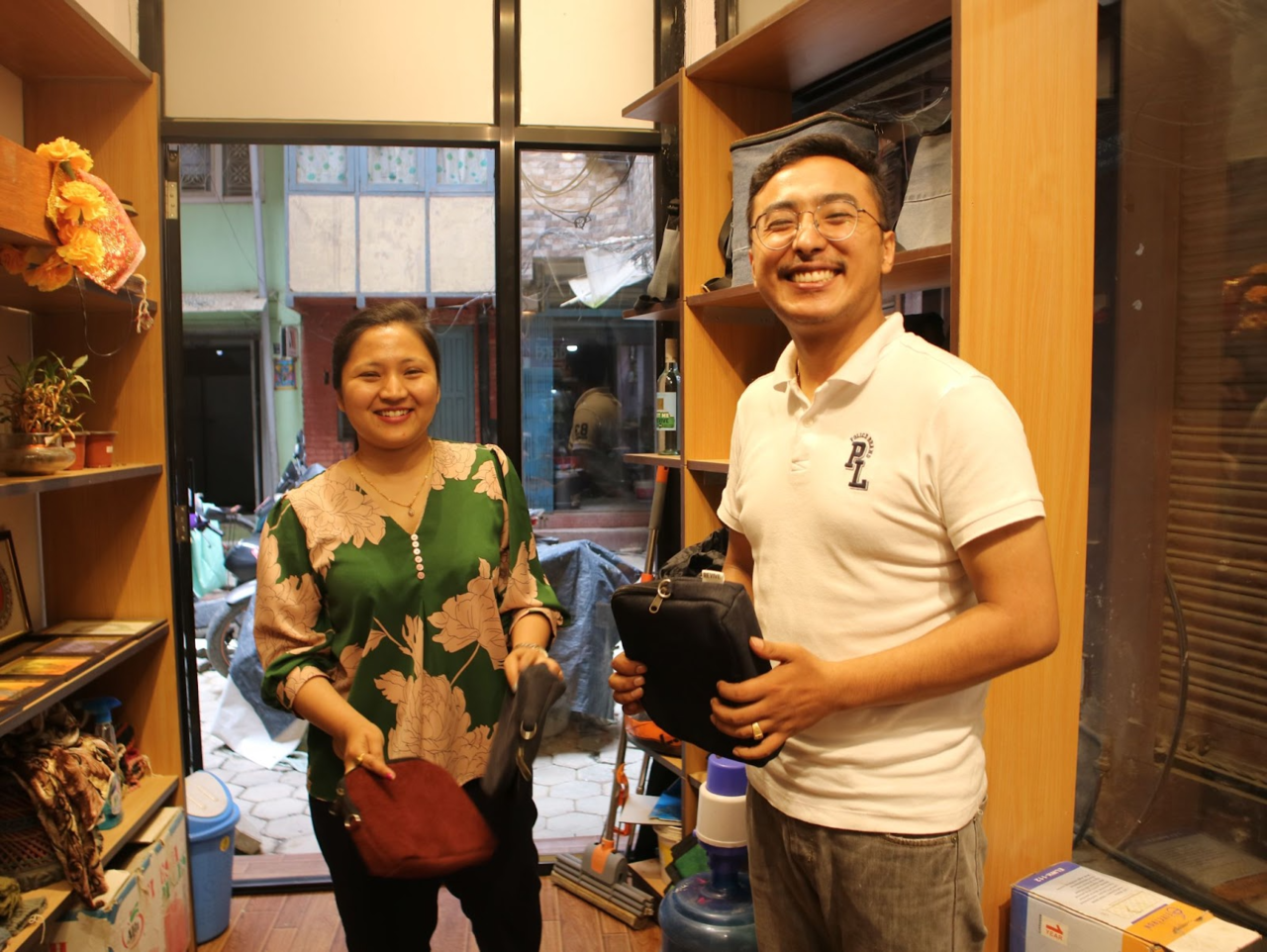
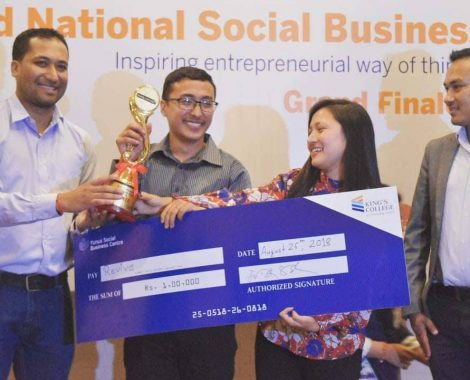
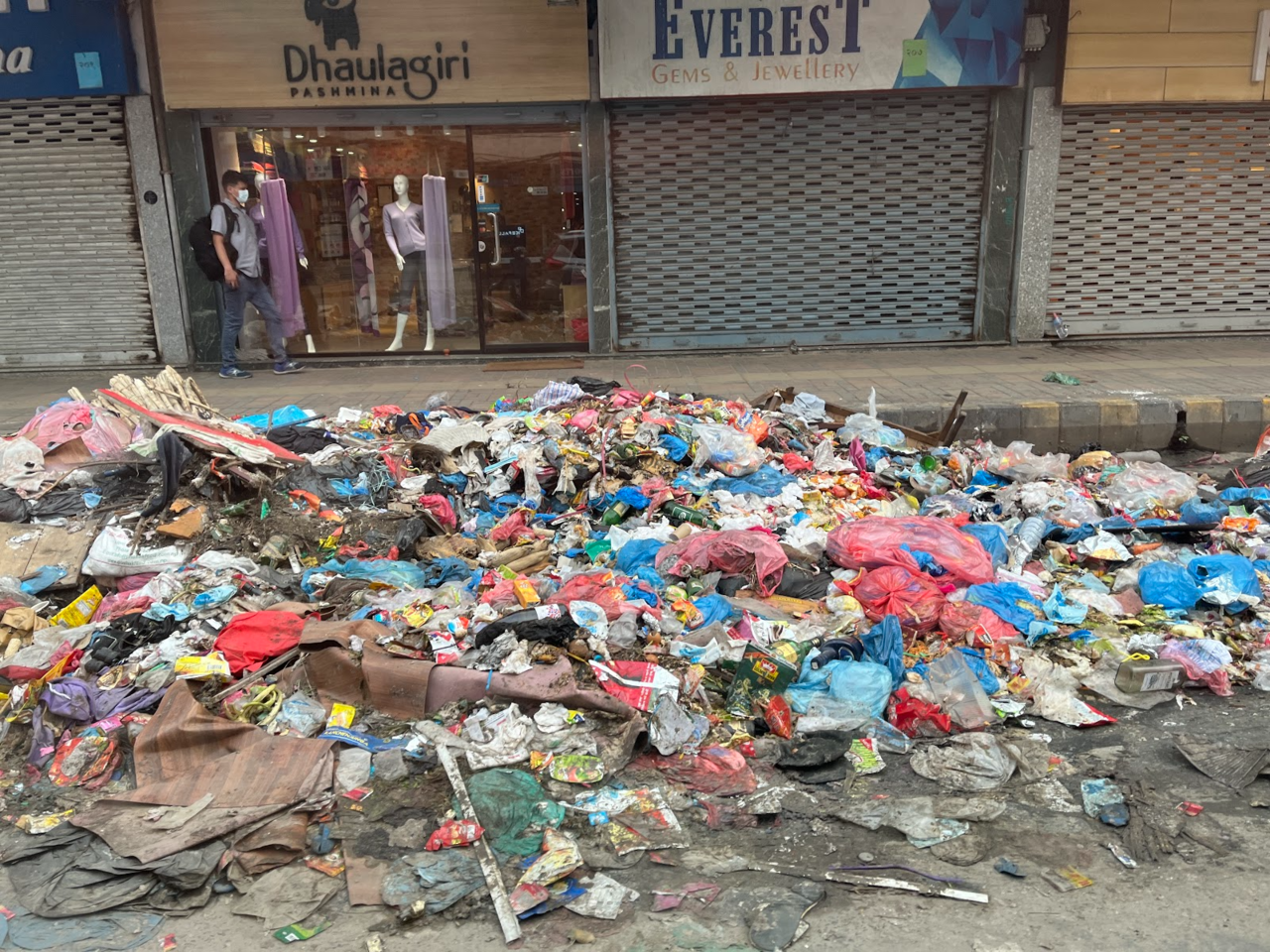
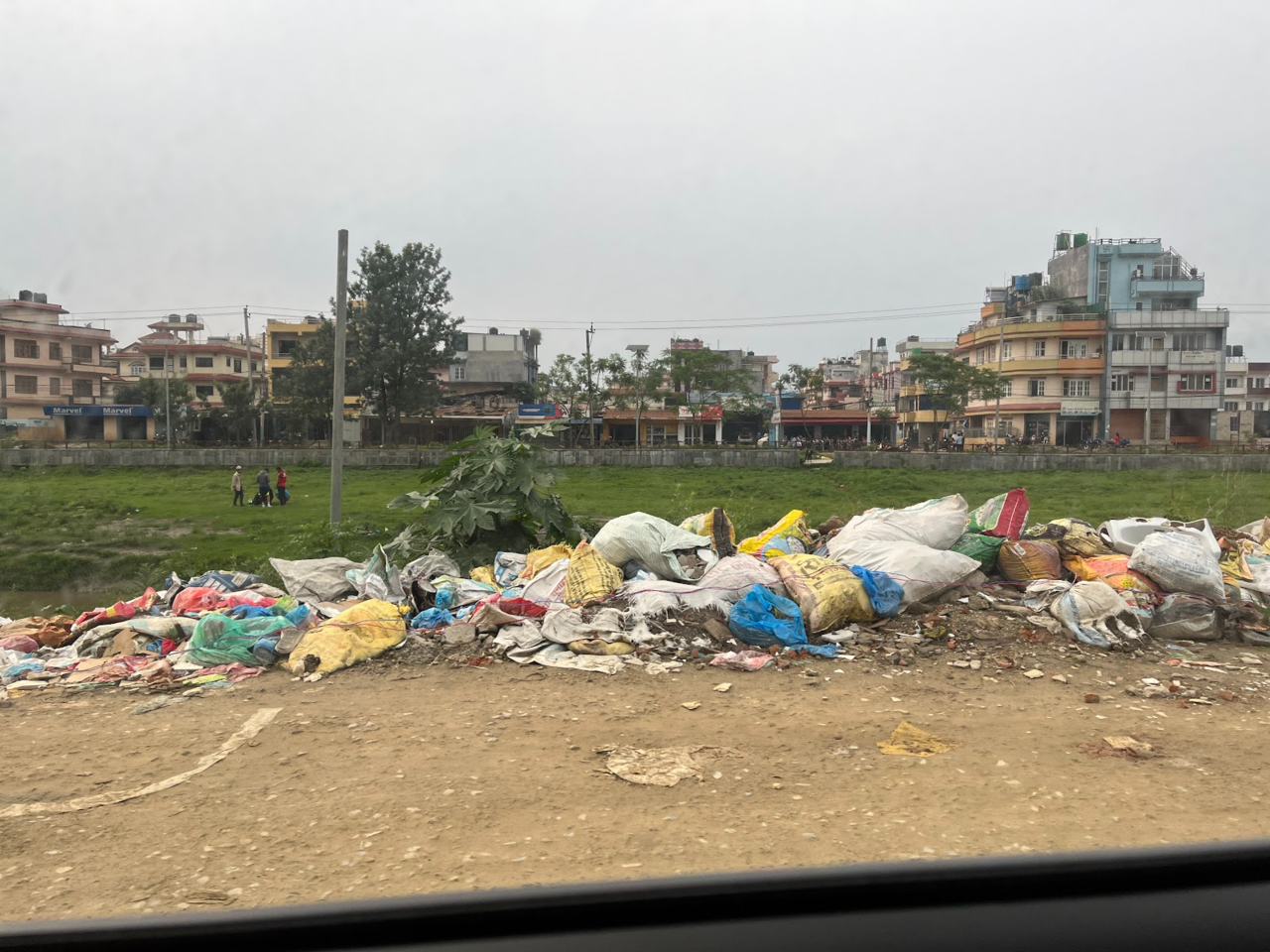
Nepal is one of the least developed countries in the world and is under the fastest urbanization among South Asian countries, which results in a surge of waste generation. (Korea Environmental Industry & Technology Institute, 2018) About 4,900 tons of solid waste are generated every day (World Bank, 2021), and half of them are generated in Kathmandu, Nepal's capital(Nepal Environmental Statistics, 2019) However, municipal waste management is not systematic, with citizens just incinerating or dumping them into surrounding spaces. (World Bank, 2013)
This unsanitary waste management risks public health and causes environmental problems. Temporary dumping of waste on roadsides or other low-lying land clogs the drainage system and just leaving solid waste which contains lots of organic materials unattended without management generates large amounts of greenhouse gases that cause climate change. Therefore, proper waste management in Nepal is urgently needed.(Central Bureau of Statistics, 2019)
It is said that the solid waste thrown into the landfill contains about 1,000 kilograms of fabric waste every day. According to the UN Alliance for Sustainable Fashion, the fashion industry accounts for about 10% of global greenhouse gas emissions as well as 20% of global wastewater, which means environmental pollution from fabric wastes is also serious.
The Nepalese government is also making efforts to manage solid wastes, but they are suffering from a lack of technology and professional manpower. The main factor that makes the government hard to deal with this problem is the low awareness of the public about sustainable waste management. So, Rajan and Upcycle Nepal are playing a very important role in terms of informing citizens of new ways of resource circulation through upcycling products.
The collected clothing is washed and segregated according to the condition which determines a new place to be used. Clothing in good condition is reborn as a fashion item through the upcycling process, and clothing that is difficult to use as an upcycling product is donated for the vulnerable or downcycled into recycled cottons that go into seating pads, mattresses or sofa cushions.
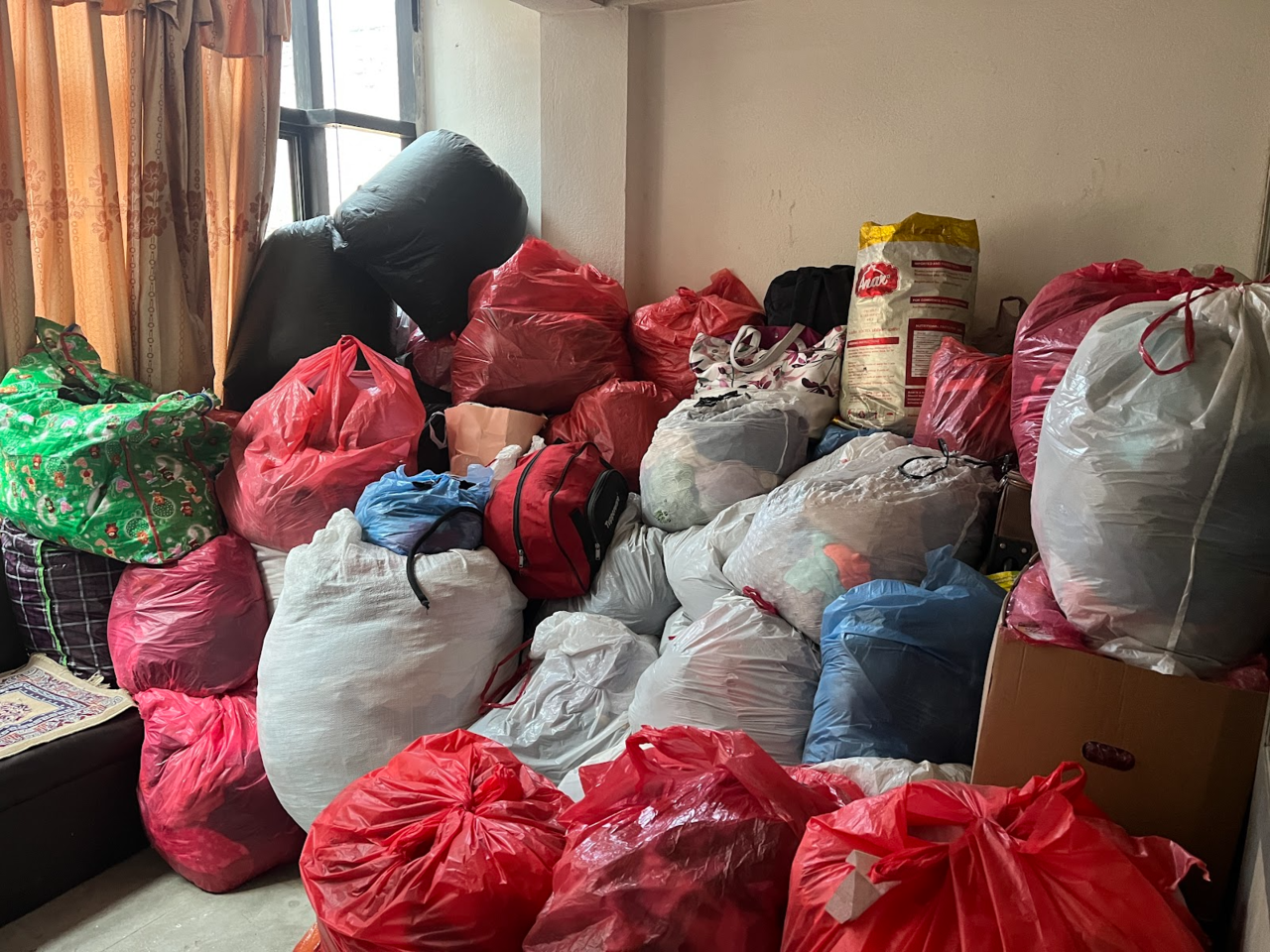
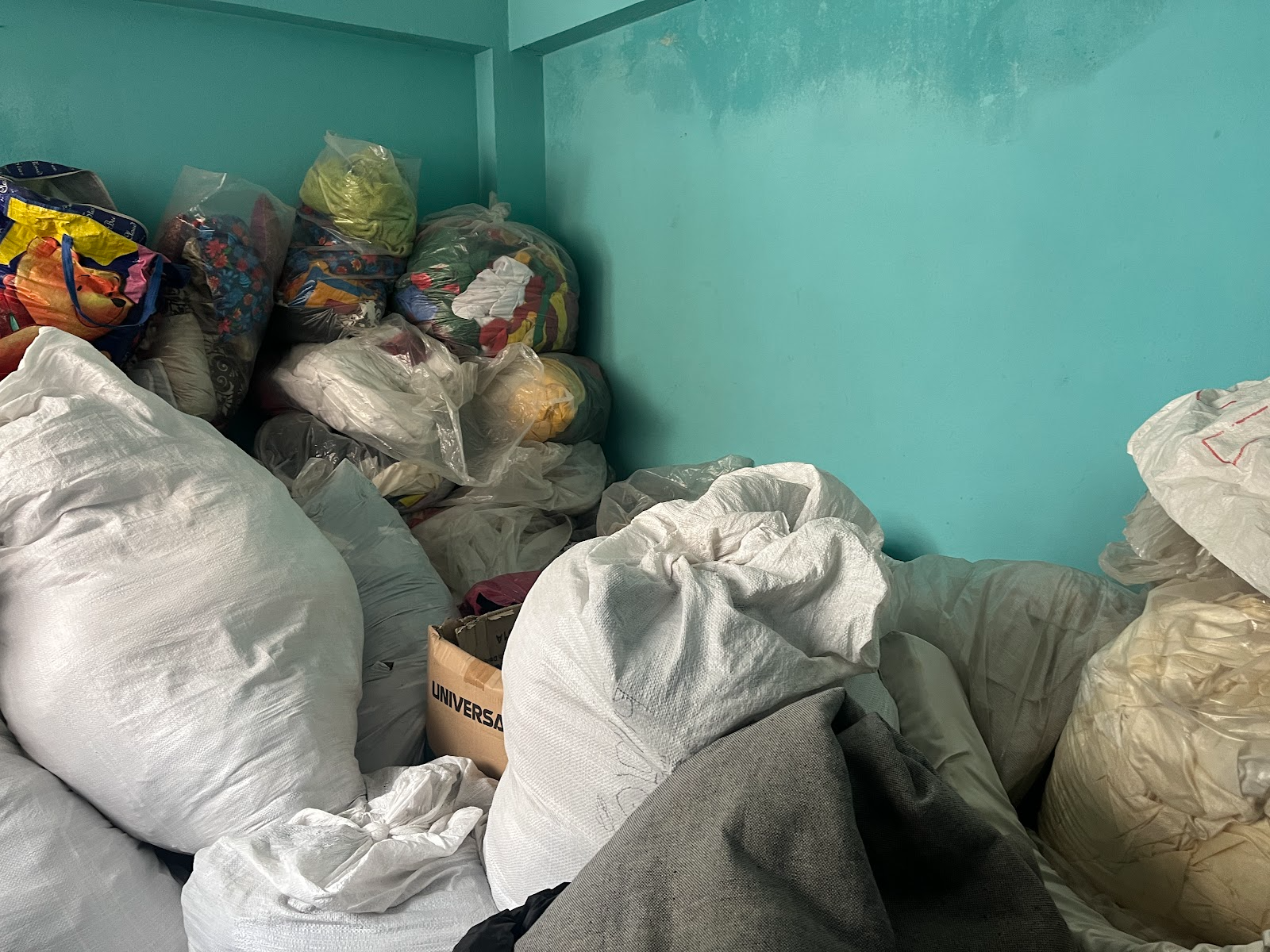
Rajan also researches popular designs by referring to various brands to maintain and improve the quality of the products. A distinguishing factor of Upcycle Nepal is to communicate with customers to receive feedback on products and reflect their opinions on its products.
These products are being sold in online and offline stores. In particular, the offline store supports not only the products of Upcycle Nepal but also various products such as food, accessories, and soap made by the Nepalese community to support the local community.
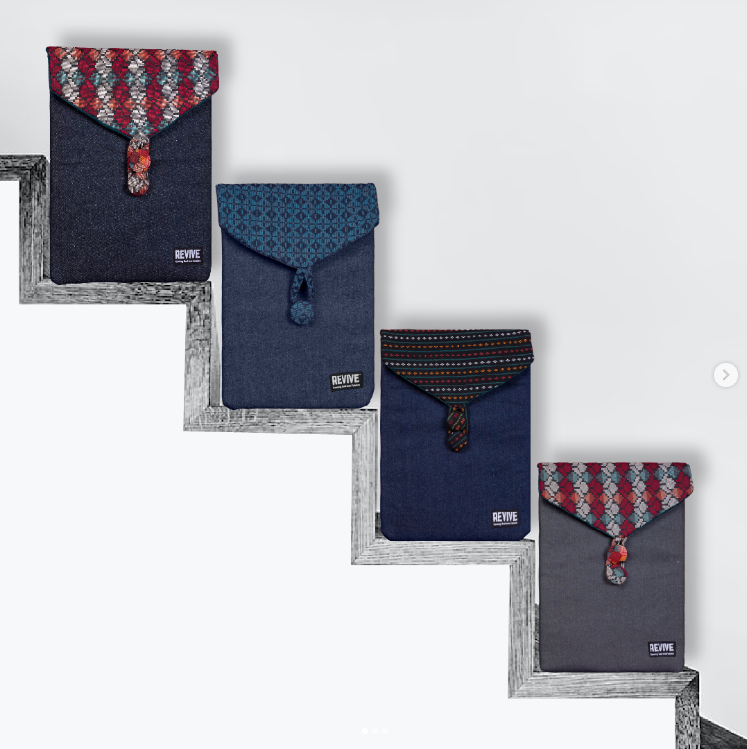
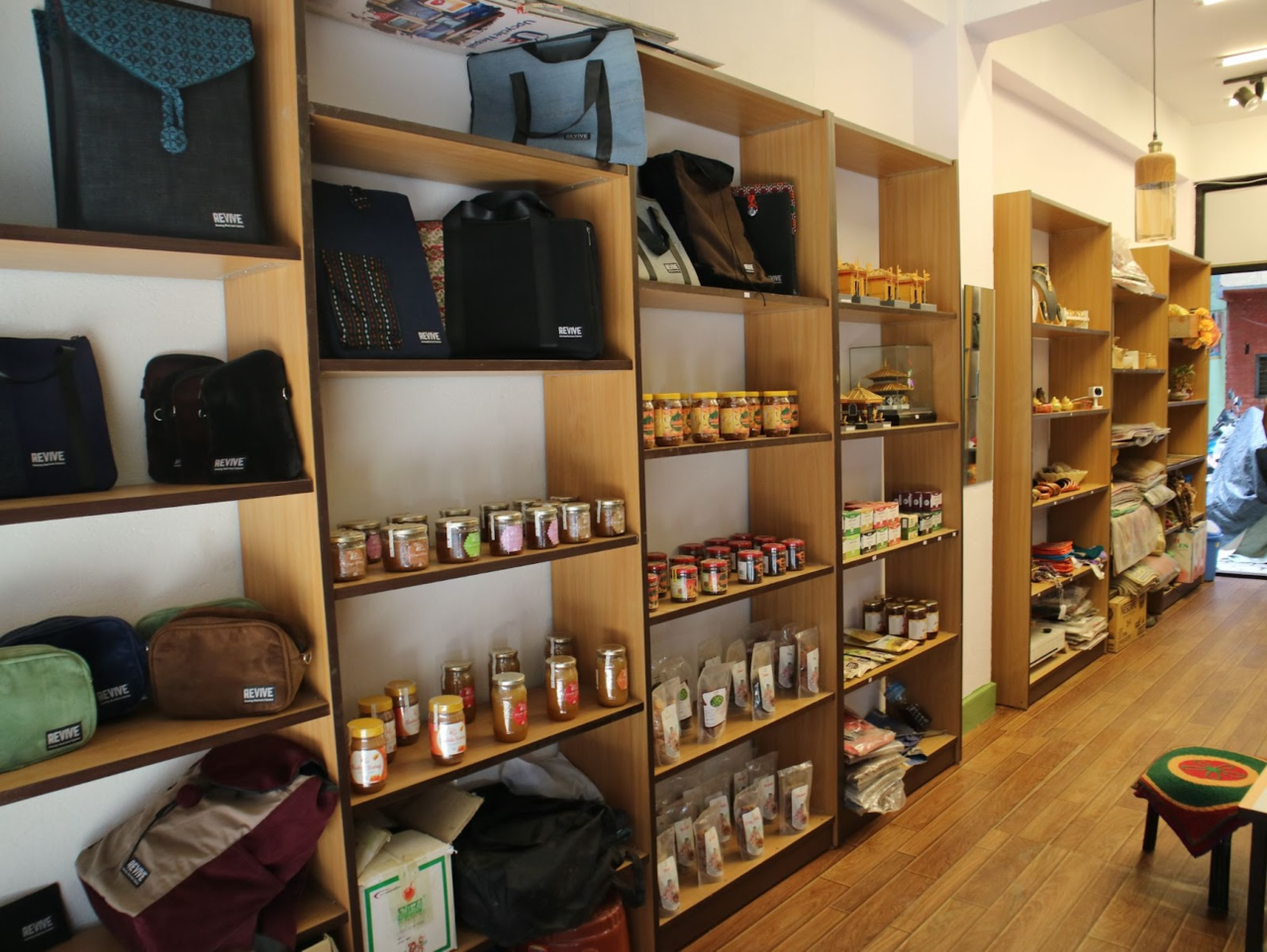
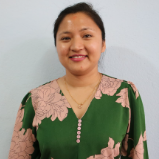
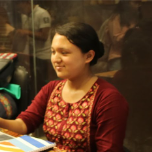
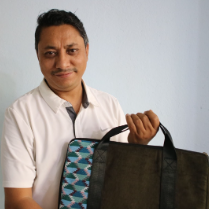


Address Tel FAX Registration NO. | 34, Sogong-ro, Jung-gu, Seoul, Rep of KOREA (04630) +82-02-730-0525, +82-02-725-2003 world@bstore.org |
Copyright (C)Beautiful Store. All rights reserved.

Copyright (C)Beautiful Store. All rights reserved.